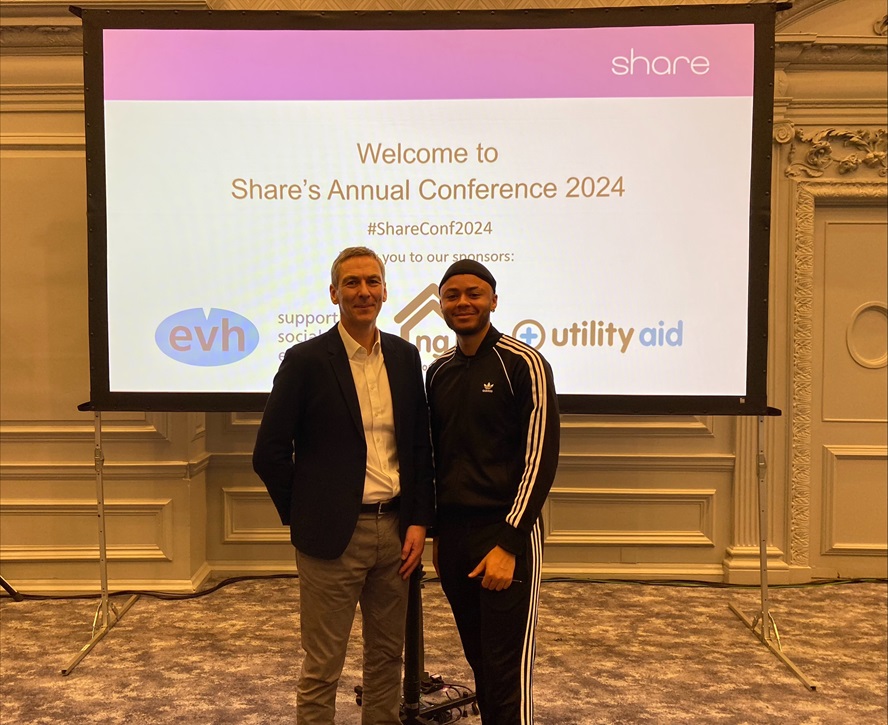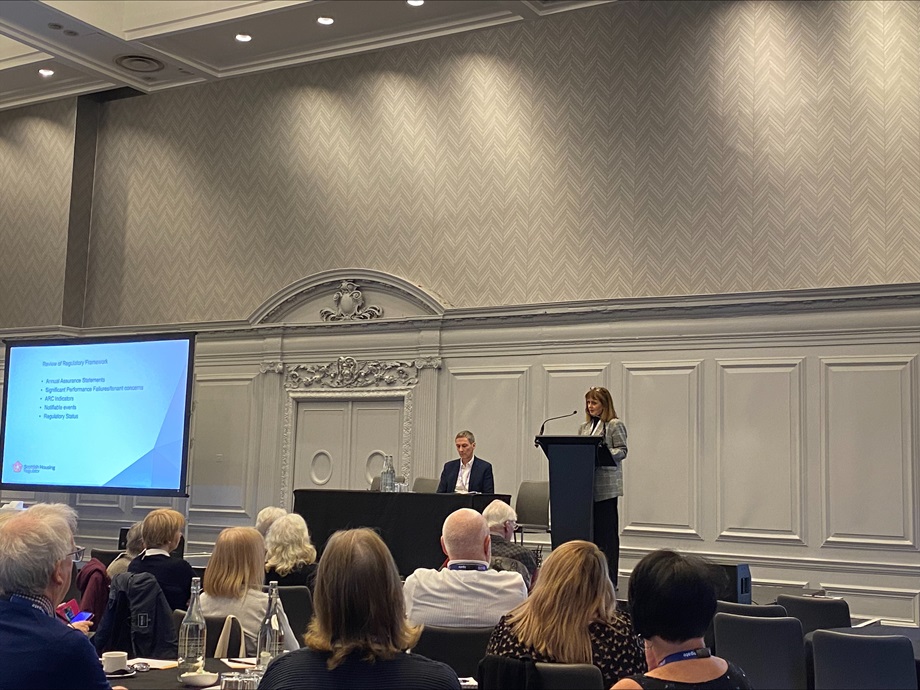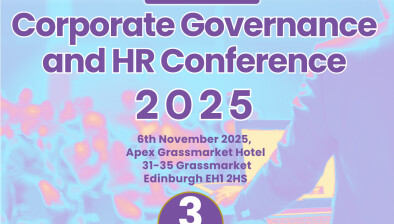Summit sees sector leaders confront Scotland’s housing emergency

Share chief executive Daryl McIntosh with social housing campaigner Kwajo Tweneboa
The scope, scale and impact of Scotland’s growing housing emergency was top of the agenda at one of the industry’s most important conferences.
Taking place in Glasgow, the two-day Share Annual Conference saw more than 200 senior figures and decision-makers from across housing come together for a series of talks and workshops.
Among the speakers was Helen Shaw, director of regulation with the Scottish Housing Regulator, which reports to the Scottish Parliament on registered social landlords and local authority housing.
During her speech, she raised concerns about major budget cuts to services that support those in homeless or temporary accommodation, with demand continuing to surge.
Helen said: “As well as building new homes, many RSLs (registered social landlords) undertake a range of activities, such as welfare and energy advice, which help tenants to stay in their homes and sustain their tenancies.
“But these are not core housing services, and while a relatively small area of expenditure for most RSLs, we see from our analysis of financial projections that RSLs plan to almost halve expenditure on these other activities in the coming five years.”
She also spoke of the huge challenges facing RSLs with cost pressures biting and demands to meet new net zero standards required: “In the most recent five-year financial projections, fewer RSLs told us they had considered decarbonisation costs as part of their business planning, down to 19% of all RSLs, and those that did make provision recognised that this fell well short of the funding needed to decarbonise their homes.
“While this position is understandable, it does mean one of the key risks to the sector is not currently being adequately covered within their financial projections and there is significant work and debate required to consider how the sector can address this.”

Helen Shaw, director of regulation with the Scottish Housing Regulator, speaking at the event
The event’s charity partner, Shelter Scotland, underlined that the housing emergency is resulting in nearly 10,000 children in temporary accommodation, 755,000 people unable to heat their homes and 1.5 million living in overcrowded, dangerous, unstable or unaffordable housing.
High-profile social housing campaigner Kwajo Tweneboa brought his harrowing story to life as he called on Scottish politicians and sector leaders to make the housing emergency their number one priority.
The 25-year-old from South London shot to fame after exposing his housing association on social media, leading to him creating Channel 4 documentaries and giving evidence at Westminster.
Kwajo said: “Social housing hasn’t been prioritised for years. We need to look at housing and rental as a necessity, not just a way of accumulating wealth. People should not be living in destitution in Scotland in 2024.
“We must shift the focus on building housing to social housing, reforming from a bottom-up approach to make sure we are improving the lives of those suffering worst, first. The reality is, housing in the UK is built on terrible foundations.”
Taking place at the Grand Central Hotel, the event was run by Share, the sector provider of training courses and development opportunities.
Further insights were provided by investment experts, damp and mould specialists, the past president of the Chartered Institute of Housing and a number of active leaders from Scotland’s housing associations.
Daryl McIntosh, chief executive with Share, said: “It is no exaggeration to say that conditions have never been more challenging for Scotland’s social housing sector.
“The industry is facing huge pressures from all angles. Surging demand, cost inflation and a shortage of supply and ability to build new homes is being exacerbated by a need to dramatically improve homes to meet net zero standards.
“It was brilliant to have such a diverse mix of inspiring speakers and to bring leading figures together. Ingenuity is required to find the solutions to improve the current situation – and I believe events like this can be a catalyst for change.”









